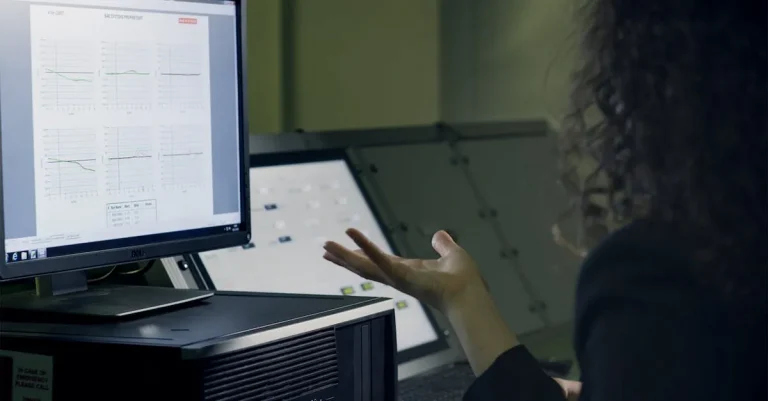What Science Courses Do 11Th Graders Take? A Detailed Look At The Science Curriculum
As a high school junior, you’re starting to think about college and potential careers. Nailing down your science curriculum and classes is essential during 11th grade. The sciences you take now can pave the path to your dream school and degree program down the road.
If you’re short on time, here’s a quick answer to your question: Most 11th grade students take at least biology, chemistry, and physics for their core science classes. Common electives include anatomy, environmental science, astronomy, geology, and forensics.
In this comprehensive guide, we’ll outline the typical science curriculum for 11th graders. We’ll cover the core science courses you can expect to take, plus some common electives. We’ll also look at key concepts you’ll learn in each discipline at the junior year level.
Typical 11th Grade Core Science Courses
When it comes to the science curriculum for 11th graders, students typically take a variety of core science courses that provide them with a solid foundation in the three main branches of science: biology, chemistry, and physics.
These courses are designed to deepen their understanding of scientific concepts and prepare them for more advanced studies in college or future careers in science-related fields.
Biology
Biology is often a required course for 11th graders and focuses on the study of living organisms and their interactions with the environment. In this course, students explore topics such as cell biology, genetics, evolution, ecology, and human anatomy.
They learn about the intricacies of life on Earth, from the smallest single-celled organisms to complex ecosystems. Biology helps students develop critical thinking skills and a better understanding of the natural world around them.
Chemistry
Chemistry is another core science course commonly taken by 11th graders. It delves into the study of matter, its properties, and its interactions. Students learn about atoms, molecules, chemical reactions, and the periodic table.
They conduct experiments and analyze data to gain a deeper understanding of the fundamental principles of chemistry. Chemistry provides a solid foundation for understanding the physical and chemical processes that occur in the world around us.
Physics
Physics, the third core science course for 11th graders, explores the fundamental principles that govern the physical world. Students learn about motion, forces, energy, electricity, magnetism, and waves.
They engage in hands-on experiments and mathematical calculations to understand how things work in the universe. Physics helps students develop problem-solving skills and a deeper appreciation for the laws that govern the natural world.
While these core science courses are typically found in the 11th grade curriculum, the specific topics and depth of study may vary depending on the school and district. It’s important for students to consult their school’s course catalog or speak with their guidance counselor to get a better understanding of the science courses offered at their particular school.
Common 11th Grade Science Electives
Anatomy and Physiology
One popular science elective for 11th graders is Anatomy and Physiology. In this course, students learn about the structure and function of the human body. They delve into topics such as the skeletal system, muscular system, cardiovascular system, and respiratory system.
Through hands-on activities and laboratory experiments, students gain a deeper understanding of how the different systems in the body work together to maintain homeostasis. This course is particularly beneficial for students who are interested in pursuing careers in healthcare or biology.
Environmental Science
Another common science elective for 11th graders is Environmental Science. This course focuses on the study of the environment and the impact of human activities on the planet. Students learn about topics such as pollution, climate change, conservation, and sustainable development.
They explore the interconnectedness of different ecosystems and discuss ways to address environmental issues. Through field trips and research projects, students develop a greater appreciation for the importance of preserving our natural resources.
Environmental Science is a great choice for students who are passionate about making a positive impact on the environment.
Astronomy
If students have an interest in the wonders of the universe, they may opt for Astronomy as their 11th grade science elective. This course explores celestial bodies such as planets, stars, galaxies, and the universe as a whole.
Students learn about the history of astronomy, the tools and techniques used to study space, and key discoveries in the field. They also have the opportunity to observe celestial objects through telescopes and participate in stargazing activities.
Astronomy sparks curiosity and wonder about the vastness of space and our place in it.
Geology
Geology is another popular science elective for 11th graders. In this course, students study the Earth’s structure, rocks, minerals, and geological processes. They learn about plate tectonics, earthquakes, volcanoes, and the formation of mountains.
Through hands-on experiments and field trips, students gain a deeper understanding of how geological forces shape our planet. Geology is a fascinating subject that not only provides insights into the Earth’s past but also helps us understand its future.
Forensic Science
For those who are intrigued by crime-solving and investigative techniques, Forensic Science is a compelling choice for an 11th grade science elective. This course combines elements of biology, chemistry, and physics to analyze evidence and solve crimes.
Students learn about fingerprint analysis, DNA profiling, ballistics, and other forensic techniques. They also explore the ethical considerations and legal aspects of forensic science. Forensic Science provides a unique opportunity for students to apply scientific principles in a real-world context and potentially pave the way for a career in forensic investigation.
Key Science Concepts Learned in 11th Grade
Biology Concepts
In 11th grade, students delve deeper into the fascinating world of biology and explore complex concepts that build upon their previous knowledge. They learn about the intricacies of cellular biology, including topics such as DNA replication and protein synthesis.
Furthermore, students study genetics, including Mendelian inheritance and the principles of genetic engineering. They also explore the diversity of life, from the classification of organisms to the study of ecosystems and how they function.
Additionally, students in 11th grade biology courses often gain a deeper understanding of human anatomy and physiology. They learn about the various systems of the body, such as the circulatory, respiratory, and nervous systems, and explore how these systems work together to maintain homeostasis.
They may also study topics related to health and disease, including the immune system and the impact of lifestyle choices on overall well-being.
Chemistry Concepts
11th grade chemistry courses build upon the foundational principles of previous years, allowing students to explore more complex concepts. They study chemical reactions in more detail, learning about thermodynamics, equilibrium, and kinetics.
They also delve into the world of organic chemistry, exploring the structures and properties of various organic compounds.
Students in 11th grade chemistry courses often conduct laboratory experiments to apply their knowledge and develop their practical skills. They may perform titrations, analyze the properties of different substances, and investigate chemical reactions.
These hands-on experiences help students understand the practical applications of the concepts they learn in the classroom.
Physics Concepts
11th grade physics courses introduce students to fundamental concepts in the field of physics. They learn about mechanics, including topics such as Newton’s laws of motion, projectile motion, and circular motion.
Students also explore the principles of electricity and magnetism, including the behavior of electric circuits and the relationship between electricity and magnetism.
In addition, students in 11th grade physics courses often study waves and optics. They learn about the properties of waves, including wave interference and the Doppler effect. They also explore the behavior of light, including the reflection, refraction, and diffraction of light waves.
Preparing for Standardized Science Exams
SAT Subject Tests
One important standardized science exam that 11th graders may take is the SAT Subject Test in Science. This test allows students to showcase their knowledge and understanding of specific science subjects, such as Biology, Chemistry, or Physics.
It is essential for students to prepare for these tests by studying the relevant topics and practicing sample questions. By doing so, they can increase their chances of earning a high score and impressing college admissions officers.
Students can find study resources and practice tests on the official College Board website (https://collegereadiness.collegeboard.org/sat-subject-tests/subjects/science).
ACT Science Section
In addition to the SAT Subject Tests, 11th graders may also need to prepare for the Science section of the ACT. This section assesses a student’s scientific reasoning skills and ability to interpret data and graphs.
It is important for students to familiarize themselves with the format of the ACT Science section and practice solving scientific passages and answering related questions. The official ACT website (https://www.act.org/content/act/en/products-and-services/the-act/test-preparation.html) offers valuable resources and practice tests to help students succeed on this exam.
AP Exams
Advanced Placement (AP) courses are rigorous, college-level courses offered in high school. These courses culminate in an AP exam that allows students to earn college credit if they score well. 11th graders may choose to take AP science courses such as AP Biology, AP Chemistry, or AP Physics.
Preparing for these exams involves studying the course material throughout the year and reviewing concepts and skills closer to the exam date. The College Board’s AP Central website (https://apcentral.collegeboard.org/courses) provides resources, study guides, and past exam questions for AP science courses, helping students excel in their studies and perform well on the AP exams.
Choosing Science Electives Based on College Interests
When it comes to choosing science electives in 11th grade, students have a variety of options available to them. These electives provide students with the opportunity to explore different scientific disciplines and tailor their high school education to align with their future college interests.
Here are some popular science electives that 11th graders can consider:
Engineering and Technology
For students interested in pursuing a career in engineering or technology, taking science electives in this field can be a great choice. Courses such as robotics, computer programming, and electrical engineering can provide a solid foundation in these areas.
Not only do these courses help students develop problem-solving and critical thinking skills, but they also offer hands-on experience with cutting-edge technologies.
Health Sciences
Those who are considering a future in the healthcare industry may find science electives in the health sciences particularly beneficial. Courses such as anatomy and physiology, medical terminology, and biomedical sciences can provide students with a deeper understanding of the human body and healthcare practices.
These electives can also serve as a valuable introduction to the rigorous coursework they may encounter in college.
Environmental Science
With the increasing importance of sustainability and environmental conservation, science electives in environmental science can be a great choice for students interested in making a positive impact on the planet.
Courses in this field cover topics such as ecology, conservation biology, and environmental policy. By taking these electives, students can gain a better understanding of the interconnectedness of the natural world and develop the skills needed to address environmental challenges.
Physics and Astronomy
For those with a passion for understanding the fundamental laws of the universe, science electives in physics and astronomy can be a fascinating choice. These courses delve into topics such as classical mechanics, quantum physics, and astrophysics.
By studying the mysteries of the universe, students can develop critical thinking skills and gain a deeper appreciation for the wonders of the cosmos.
Other Science Fields
Besides the aforementioned fields, there are several other science electives that students can explore based on their individual interests. These may include courses in chemistry, biology, geology, or even interdisciplinary fields such as bioinformatics or biotechnology.
By diversifying their scientific knowledge, students can gain a broader perspective and be better equipped for the ever-evolving scientific landscape.
It’s important for 11th graders to carefully consider their college interests when choosing science electives. By selecting courses that align with their future goals, students can not only enhance their high school education but also gain a competitive edge when applying to colleges or pursuing specific majors.
Exploring different scientific disciplines can open doors to exciting career opportunities and help students make informed decisions about their academic and professional paths.
Conclusion
As an 11th grader, you’ll take foundational courses like biology, chemistry, and physics that introduce core scientific concepts you’ll need in college. You’ll also likely have the chance to explore electives that align with your academic and career interests.
Use this year to master the fundamentals that will launch you into more advanced science studies. Work closely with your counselor to choose electives that fit your goals. With focus and dedication, your junior year science curriculum will propel you to success in 12th grade, college, and beyond.







